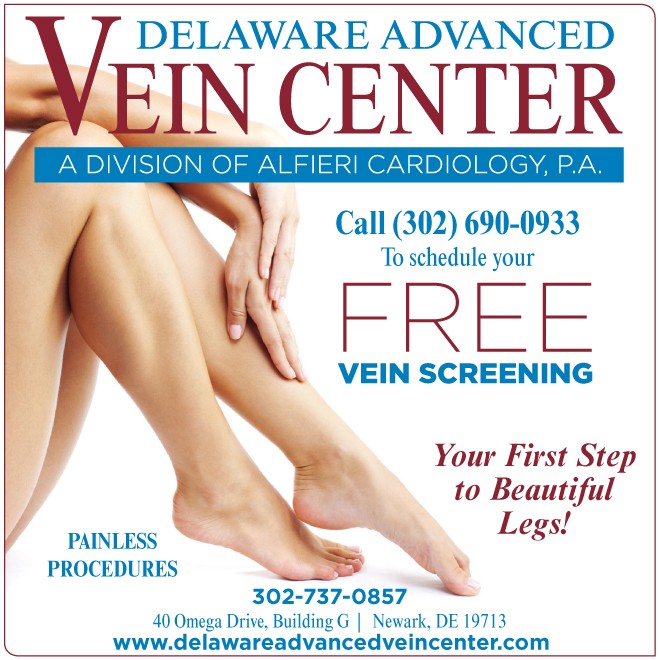Why Spider Vein Therapy Doesn’t Always Work

By Anthony Alfieri, DO, FACC
As a vein center, we see many cases each year of people who are disappointed in the treatment they received for their spider veins. The problem is that most people do not understand what spider veins are or why they get them.
Here is an example we have seen working with patients with spider veins: Mary Smith is a 43 year old female who notices she has several spider veins on her legs. She finds them uncomfortable and cosmetically unattractive, so she goes to a center which specializes in treating cosmetic spider veins. She is told that for $300, the spider veins can be injected and they will resolve. This treatment method is called sclerotherapy. Mary may need to have multiple sclerotherapy treatments depending on how bad her spider veins are. Mary decides to have this painful and expensive procedure done, only to notice months later her spider veins have returned. Unfortunately, this is a more common scenario than one might realize.
At the Delaware Advanced Vein Center, we see several patients a week who present us with this scenario. The optimal evaluation of a patient with spider veins is a thorough history and physical examination, for venous insufficiency. To diagnose whether Mary has venous insufficiency, she would schedule a vascular ultrasound study done on her legs to measure the vein size and determine if her veins are adequately circulating blood from her lower extremities to her heart. The legs provide the heart 70% of the blood that it receives so the direction of the blood always flows towards the heart.
In venous insufficiency, which can be a hereditary disease, valves in the veins are malfunctioning so the blood, which is supposed to flow to the heart, falls back into the legs and “pools” in the veins. This disease is relatively common and may affect up to 40% of the population. This can cause spider veins in the early stages; however as the disease progresses, patients will notice darkening of the skin, heaviness of the legs, cramping, ulcers, and new varicose veins showing up. Thus, spider veins may be one of the earliest signs of venous insufficiency. Having spider veins does not mean you definitely have venous insufficiency, it just means this may be a symptom for a much bigger problem, not just a cosmetic nuisance.
It is important that patients who have spider veins get diagnosed and treated properly. Otherwise, just treating the spider is only treating a symptom, not the disease itself. If varicose veins are a family disease, than anyone with spider veins would be advised to undergo a vascular ultrasound evaluation at a vein center so that if venous insufficiency is present it can be treated appropriately, avoiding costly sclerotherapy which is doomed for failure. Call us at (302) 737-0857 to set up an appointment at our vein center for a free vein screening to determine if any testing is needed for further evaluation.
Anthony Alfieri, DO, FACC is a board certified interventional cardiologist, who has been practicing in the New Castle County area for over 25 years. His efforts to improve the quality of life for all individuals – both men and women alike – who suffer from the effects of venous insufficiencies continues with the formation of Delaware Advanced Vein Center. Dr. Alfieri has found that for many people, having varicose veins is needlessly limiting and it is a common misconception that the treatment of varicose veins is painful and not worth the effort. So as to provide better care for his patients, Dr. Alfieri is now performing radiofrequency ablations.
Intersocietal Commission for the Accreditation of Vascular Laboratories:
The purpose of ICAVL is to ensure high quality patient care and to promote health care by providing a mechanism to encourage and recognize the provision of quality noninvasive vascular diagnostic testing by a process of voluntary accreditation.
Intersocietal Commission for the Accreditation of Nuclear Medicine Laboratories:
The purpose of ICANL is to ensure high quality patient care and to promote health care by providing a mechanism to encourage and recognize the provision of quality nuclear cardiology and nuclear medicine diagnostic evaluations by a process of voluntary accreditation.
Intersocietal Commission for the Accreditation of Echocardiography Laboratories:
The purpose of ICAEL is to ensure high quality patient care and to promote health care by providing a mechanism to encourage and recognize the provision of quality echocardiographic diagnostic evaluations by a process of voluntary accreditation.


